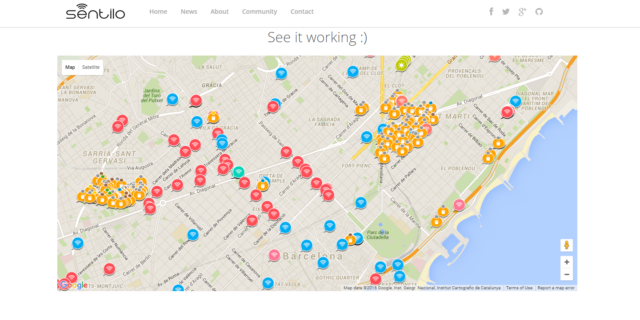Sentilo is an open source sensor and actuator platform designed to fit in the Smart City architecture of any city that looks for openness and easy interoperability. Initially driven by the City of Barcelona, Sentilo is a two-fold project:
- On the one hand, technically it is a platform that can connect sensors from different manufacturers because it provides an open and free API that allows avoid “silos” of information generated by the implementations of propietary software.
- On the other hand, from the organizational and economic terms, Sentilo has managed to create a community composed of several organizations, companies and public administration that finance collaboratively the development of the platform in an open source model.

